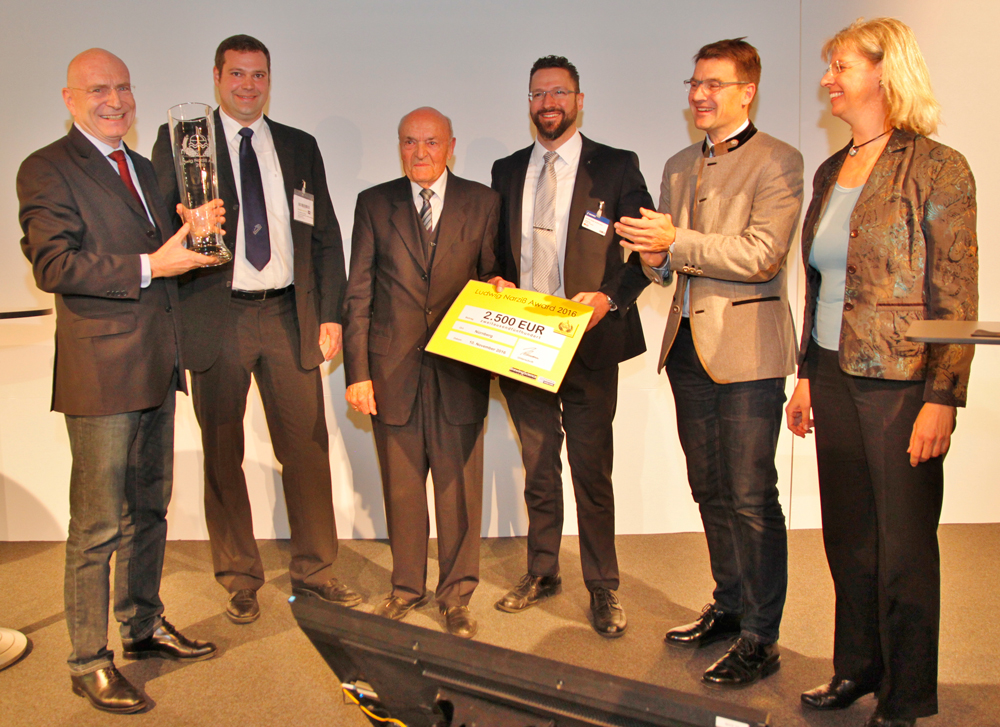2nd Ludwig Narziss Award bestowed
The 2nd Ludwig Narziss Award was bestowed at BrauBeviale 2016 in Nuremberg on November 10th. The award, valued at 2500 EUR, went to Dr. Konrad Müller-Auffermann, Krones AG, Neutraubling, Germany, Prof. Fritz Jacob, Dr. Mathias Hutzler, TU Munich, Research Centre Weihenstephan for Brewing and Food Quality, Freising-Weihenstephan, Germany, and Alirio Caldera MSc, Polar Brewery C.A., Caracas, Venezuela, for research: “Characterization of Different Bottom Fermenting Saccharomyces pastorianus Brewing Yeast Strains“ (BrewingScience, vol. 68 (March/April 2015), pp.46-57).
The Ludwig Narziss Award was created in recognition of publications in BrewingScience issues that represent a symbiosis of scientific work and practical relevance. No wonder as the eponym is none other than Prof. Ludwig Narziss, the paragon of close interlinkage between science and practical application. Incidentally, Konrad Müller-Auffermann was at the time the 50th doctoral candidate, supervised by Prof. Narziss, who now received this prestigious distinction in international brewing science.
Yeast – a raw material in its own right
Prof. Ludwig Narziss delivered the laudatio personally. He referred to the fact that the work honoured was part of the dissertation of Konrad Müller-Auffermann about the development of a plant for continuous fermentation. In addition to TUM yeast strain 34/70, further strains were tested for their suitability for continuous fermentation. In extensive tests reflecting processes in a brewery as accurately as possible, various yeasts were analysed for fermentative ability in fermenters designed specifically with this objective in mind. Sensory assessment of resulting beers proved that a yeast strain can indeed contribute to differentiation of beers or to developing new beer types. The work thus provides an incentive to re-focus again on the fourth raw material i.e. yeast. The description of the characteristics of yeast strains and selection of same facilitate introduction of yeasts either for optimising conventional beer brand(s) or for developing “special” beers.

